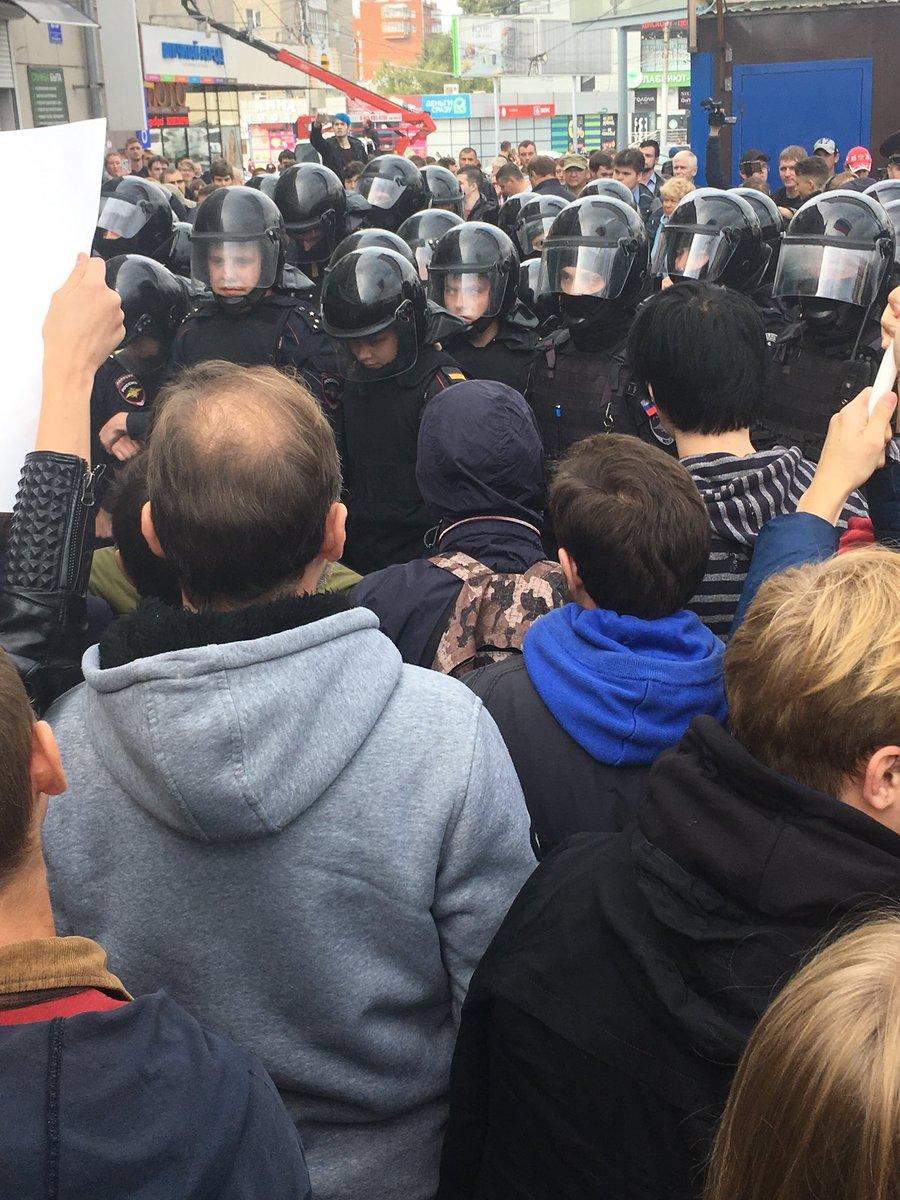
Anti-Kremlin demonstrators have taken to the streets in Russia to protest the government's plan to raise the retirement age in rallies coinciding with regional and local elections nationwide.
The election-day protests in cities across Russia on September 9 were announced last month by opposition politician Aleksei Navalny, who is currently serving a 30-day jail sentence for what authorities call violations of the law on public gatherings related to street rallies in January, according to RFE/RL.
The elections, which include a vote on executive-branch heads in 21 of Russia's 85 administrative areas, is the first major test for the government of President Vladimir Putin and Prime Minister Dmitry Medvedev since it proposed raising the retirement age.
The original plan would have increased the retirement age for men from the current 60 to 65, and from 55 to 63 for women. Later Putin modified the proposal so women would retire at age 60.
According to various polls, about 90 percent of Russians oppose the plan to raise the retirement age, and a recent poll by the Levada Center polling agency found that more than 50 percent of Russians say they would participate in protests against it.
Navalny's team said that more than 400 protesters took to the streets in the Far East city of Vladivostok on September 9, and that demonstrators chanted "No to pension reform" and called on Putin to resign. Regional authorities put the number of protesters in Vladivostok at 120.
Organizers reported that police in several cities detained protesters, including the head of Navalny's headquarters in the Far East city of Khabarovsk.
Authorities detained several prominent Navalny associates on the eve of the protests as well.
Read alsoRFE/RL: Russians rally against retirement-age increase (Photos, video)
At least 50 people had been detained by the authorities in connection with the protests between September 5 and September 9, according to the Russian news portal OVD-Info, which tracks the arrest of protesters.
In addition to the federal administrative areas -- including the city of Moscow -- that are electing regional heads in the September 9 polls, 16 regions are electing legislatures, while other areas are holding mayoral and other local ballots.
Approval ratings for Putin, Medvedev, and the ruling United Russia party have fallen noticeably since the proposed pension-age hike was passed in its first reading in the lower house of parliament in July.
"In this situation, the authorities are interested in suppressing turnout a bit and making sure only 'their' electorate shows up and votes the way they are supposed to," Stanislav Andreichuk, an elections analyst with the independent Golos election-monitoring group, told RFE/RL. "They will do what they can to get protest voters to stay home."
In Moscow, however, authorities have implemented an aggressive get-out-the-vote campaign, including promises of free concert tickets to voters and setting up polling stations outside of the city to enable voters spending the summer at their dachas to participate.
Sergei Sobyanin, the Kremlin-backed incumbent mayor who has run the capital since 2010, was expected to receive about 70 percent of the vote in the Moscow mayoral election.
Two independent liberal candidates were not allowed to run against him, while his four registered opponents are virtual unknowns.

